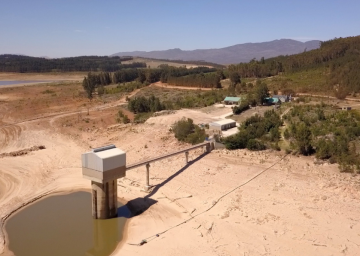
This case study is based on the water resilience approach developed after the historic three-year drought from 2015 to 2018 in Cape Town South Africa. A region that had grown accustomed to water shortages when it came close to what was described as a "day zero" scenario, where water safety would be almost completely compromised.
As a result of a thorough multistakeholder planning process, the Water Strategy: Our Shared Water Future was implemented in Cape Town to survive its ongoing drought without the threat of reaching another Day Zero crisis point. The city’s response comprised both increases in supply and reductions of demand. Water use through restrictions on household and business water use (including losses) reduced by over 40%. On the supply side, Cape Town initially explored large supply schemes, but the timeframes for delivery were not feasible. Instead, three temporary desalination plans were commissioned alongside additional abstraction from existing aquifers, as well as a water recycling plant.
Guiding principle #2 Responsive, Resilient, and Flexible Planning, from the International Good Practice Principles for Sustainable Infrastructure.


